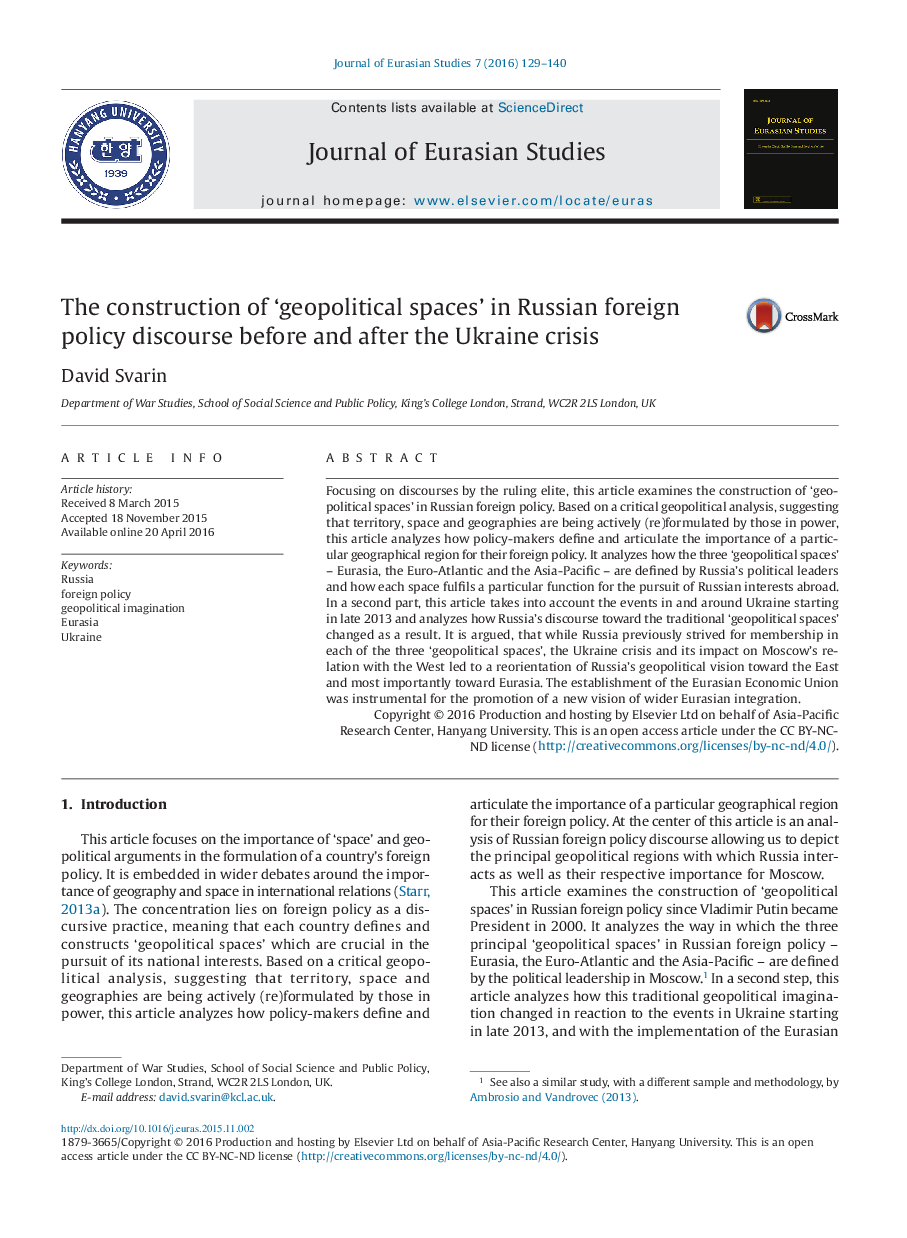| کد مقاله | کد نشریه | سال انتشار | مقاله انگلیسی | نسخه تمام متن |
|---|---|---|---|---|
| 1127160 | 1378508 | 2016 | 12 صفحه PDF | دانلود رایگان |
Focusing on discourses by the ruling elite, this article examines the construction of ‘geopolitical spaces’ in Russian foreign policy. Based on a critical geopolitical analysis, suggesting that territory, space and geographies are being actively (re)formulated by those in power, this article analyzes how policy-makers define and articulate the importance of a particular geographical region for their foreign policy. It analyzes how the three ‘geopolitical spaces’ – Eurasia, the Euro-Atlantic and the Asia-Pacific – are defined by Russia's political leaders and how each space fulfils a particular function for the pursuit of Russian interests abroad. In a second part, this article takes into account the events in and around Ukraine starting in late 2013 and analyzes how Russia's discourse toward the traditional ‘geopolitical spaces’ changed as a result. It is argued, that while Russia previously strived for membership in each of the three ‘geopolitical spaces’, the Ukraine crisis and its impact on Moscow's relation with the West led to a reorientation of Russia's geopolitical vision toward the East and most importantly toward Eurasia. The establishment of the Eurasian Economic Union was instrumental for the promotion of a new vision of wider Eurasian integration.
Journal: Journal of Eurasian Studies - Volume 7, Issue 2, July 2016, Pages 129–140
